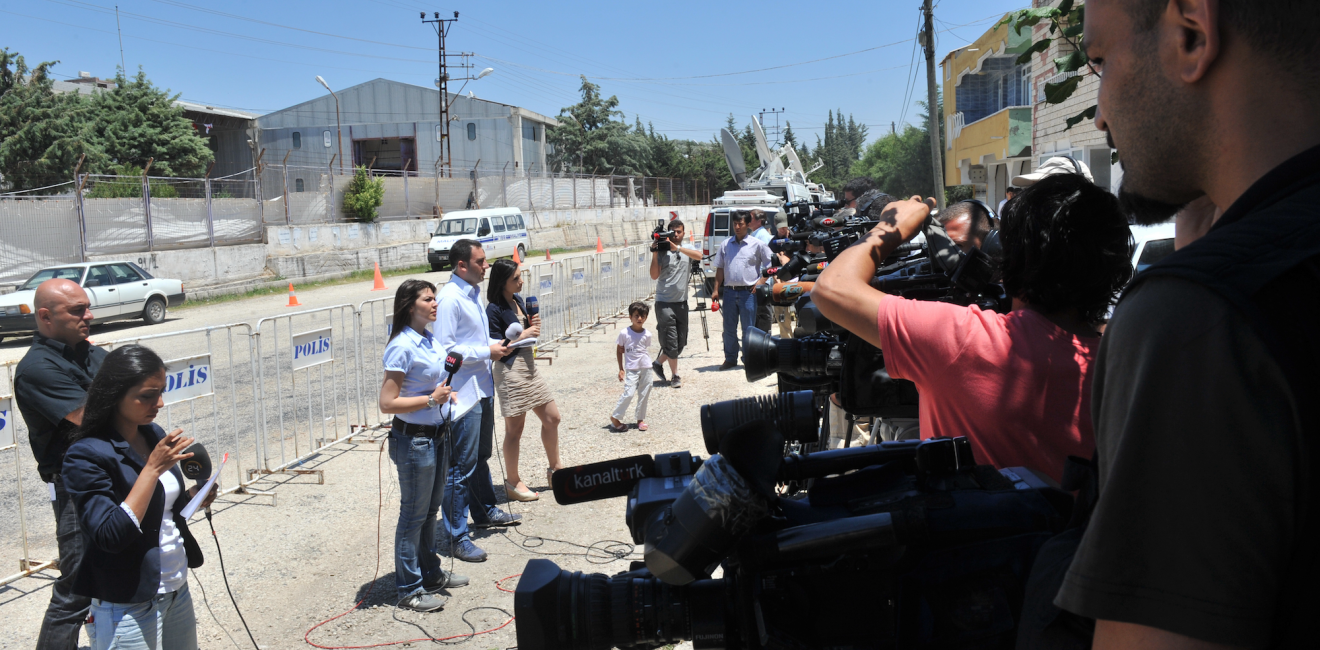
A blog of the Middle East Women's Initiative
It took me years to accept that being an independent journalist and human rights defender means I will be hated and attacked, and will face violence both online and offline.
“Why are you still doing this?” A question thrown at me often by people who love me and those who hate me. Although they have very different reasons for asking the question, both want me to stop posting and reporting on “controversial” issues.
For the first group, the loved ones, I am causing the waves of attacks. I endure bullying and violence occasionally when I report on facts that many people would rather keep swept under the rug—or when I share unpopular opinions of events, such as most of my feminist views.
For the haters, I am a package of negative — and contradicting — qualities. For example, to those who support the government, I am a terrorist Islamist. Among the conservative opposition, I am a woman agent for the Syrian regime or international agencies, depending on the context. And to secular opposition figures on the left, I am a westernized woman suffering from an internalized “white” colonial self-hate. Sometimes, these characteristics are all written about me in the same week. It appears to be easier for people to believe these views rather than accept that a local woman journalist has the adequate skills, ability, and passion to report independently about the violations committed across the region.
In response to a meme I posted that criticizes the double standards some Syrians hold toward human rights, my uncle and mother, along with other family members were attacked. In the last video call I had with my uncle before he was killed in a car accident, he shouted at me: “When will you stop harming our reputation?”
Because—unlike my male colleagues—my content is not challenged intellectually or even within its context, and the assaults are not limited to me personally, they are passed to my loved ones. Even my 7-year-old daughter was targeted twice already in her life.
Also unlike male journalists, I don’t get condemned for my ideology or ideas. Rather, they slander aspects of my private life, and I am subject to sexual harassment, misinformation, and inappropriate images in my messages. All are demonizing me as woman and discrediting me as a journalist.
Despite being a confident and powerful woman and journalist with over 15 years of experience, these intense and organized attacks are impactful, and have led me to enforce another layer of self-censorship. I stopped writing in my mother tongue, Arabic, for many years. And I even rarely write in English. When doing so, I struggle to get the hateful and abusive comments that I receive off my mind.
Unfortunately, I am no exception. Thirty percent of the women journalists surveyed by the International Center for Journalists (ICFJ) answered that they self-censor on social media. In another ICFJ survey, 20 percent of woman journalist said they withdrew from all online interaction due to harassment and threats.
I know many of those who have left our toxic public spaces choose to adopt a low profile, both virtually and physically. This in turn increases the misogyny in the already sexist public spheres of our region. It took me years to accept that being an independent journalist and human rights defender means I will be hated and attacked and will face violence both online and offline. That doesn’t mean I accept it as a matter of fact, but rather must be resilient to misinformation and its effect on my wellbeing and confidence.
The last time I was asked, “Why are you causing this to yourself?” by a good friend who was saddened by the bad comments he read about me online, I told him: I would have to produce mainstream content and censor my un-popular opinions if I want to increase my social media followers, or if I was planning to stand for any kind of elections. I firmly have no intention to do either. Does being “liked” justify losing my critical voice, which represents many silenced voices that don’t happen to have the same privileges as me, living in the UK and having a platform? It surely does not.
Author


Middle East Program
The Wilson Center’s Middle East Program serves as a crucial resource for the policymaking community and beyond, providing analyses and research that helps inform US foreign policymaking, stimulates public debate, and expands knowledge about issues in the wider Middle East and North Africa (MENA) region. Read more


Middle East Women's Initiative
The Middle East Women's Initiative (MEWI) promotes the empowerment of women in the region through an open and inclusive dialogue with women leaders from the Middle East and continuous research. Read more

Explore More in Enheduanna
Browse Enheduanna
Women are the Catalysts for Change in Lebanon

How Education Can Empower Young Women in MENA


